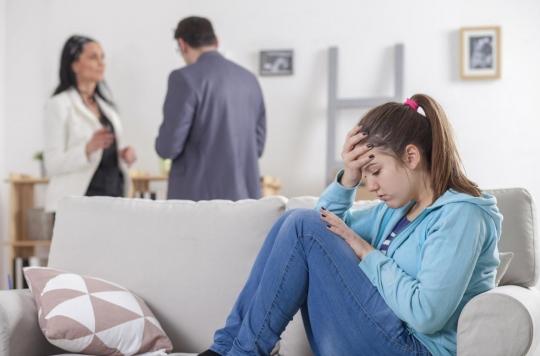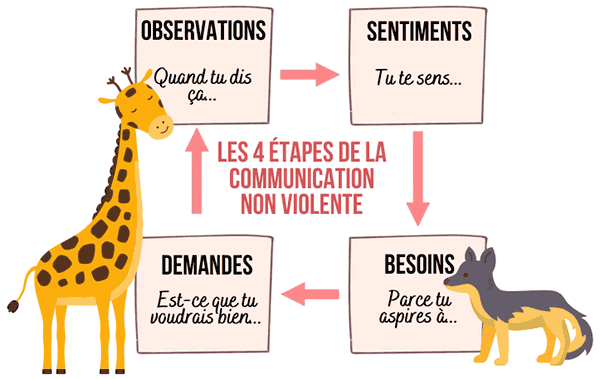After a divorce, many children would find it difficult to communicate with their father, which would have detrimental consequences on their health and self-esteem later in adolescence.

For fifty years, the number of marriages in Europe has greatly decreased while the divorce rate increased. In detail, since 1965, the gross marriage rate in the EU has fallen by nearly 50%, while the divorce rate has fallen from 0.8 divorces per 1,000 to 1.9 divorces per 1,000 in 2013. However, each knows, when adults divorce, they are not the only ones to suffer the consequences. A separation can also have serious psychological consequences for the children. In the past, studies have even shown that children whose parents had separated on very bad terms during their early childhood had a greater propensity to fall ill. Today, a new study sheds light on the negative aspects of divorce, but among adolescents this time. According to the results of the paper published in the journal WISE, many children of divorce would find it difficult to communicate with their father after the parents divorce, which would increase their health and self-esteem issues.
To reach this conclusion, researchers from the University of Bergen (Norway) followed 1,225 teenagers. They interviewed them in 2011 and 2013, asking them if it was easy or difficult to talk to their parents. The researchers also asked the participants about their health problems (headaches and stomachaches, dizziness, depression, sleep disorders, anxiety, etc.) and their self-esteem. In 2011, 213 of these children had divorced parents. Two years later, they were 270.
“We wanted to know what happens to communication between parents and children after a divorce and what is the impact on the future health of children,” comments Professor Eivind Meland, from the Department of Public Health and Care from the University of Bergen. Result of the observations: “The divorce does not seem to have affected their way of communicating with their mother, but seems related to the difficulties of conversation with their father”, he explains.
Three times as many children have lost contact with their father than with their mother
And for good reason: “If the divorce is brought before the courts, it is the mother who most often finds herself with the status of primary caregiver”. Thus, three times as many children declared having lost contact with their father than with their mother.
“It seems that the conversational difficulties between the children and the father were present also before the divorce, but we also see that the divorce weakens the relationship between the children and their father,” continues Meland. And girls would have even more difficulty talking with their fathers than boys. “In the data, we can see the trend that girls suffer more from having lost contact with their father, but the difference is not significant,” explains the researcher.
Eivind Meland elaborates: “We also find that closeness to the father and mother has an impact on the health of children two years after divorce.” The researchers thus observed a significant link between the way in which the children were able or not to communicate with their father after the divorce and the health problems encountered later. “Children who said they lost touch or had trouble talking with their dad after the divorce also had the most health issues,” Meland says. Daughters of divorced parents would therefore tend to be more ill.
In contrast, when children reported having good relations with both parents after divorce, the latter did not appear to have negative effects on their health or self-esteem. In conclusion, “this study proves a sex-specific effect on the loss of trust between fathers and children after divorce. Impairment of confidence has predictive implications for adolescent health and self-image in mid-adolescence. From a public health perspective, preserving the relationship and trust between children and their fathers after divorce appears to be an important task (…) our research clearly shows that a strong relationship with both parents is important for children’s health. This should have an influence on family policy.”
In France, more and more minors share their lives between the two homes
In France, if the number of divorces of course varies from year to year, on average at present, nearly 130,000 separations are pronounced each year. There would therefore be 1.8 marriages for 1 divorce. In other words, nearly 45% of French marriages would not last.
Traditionally given to the mother, custody of the child is increasingly given over to the father. Indeed, in 2002, alternating residence, which consists of a child residing for an approximately equal period with his father or his mother when the latter are separated, was legally recognized. This law also stipulates that “in the event of disagreement between them on the mode of residence of the child, the judge may temporarily order a residence in alternation, the duration of which he determines”. If this mode of operation is not unanimous among all the experts, many child psychiatrists judging it too disturbing in children, it is increasingly popular among parents who separate amicably.
Even at court level since between 2003 and 2012, court decisions in favor of shared custody would have doubled to reach 17% (for 73% of cases in the mother, 7% in the father and 3% in a third party). From now on, in France, one child of a divorced couple in five would live in alternating residence.
.














